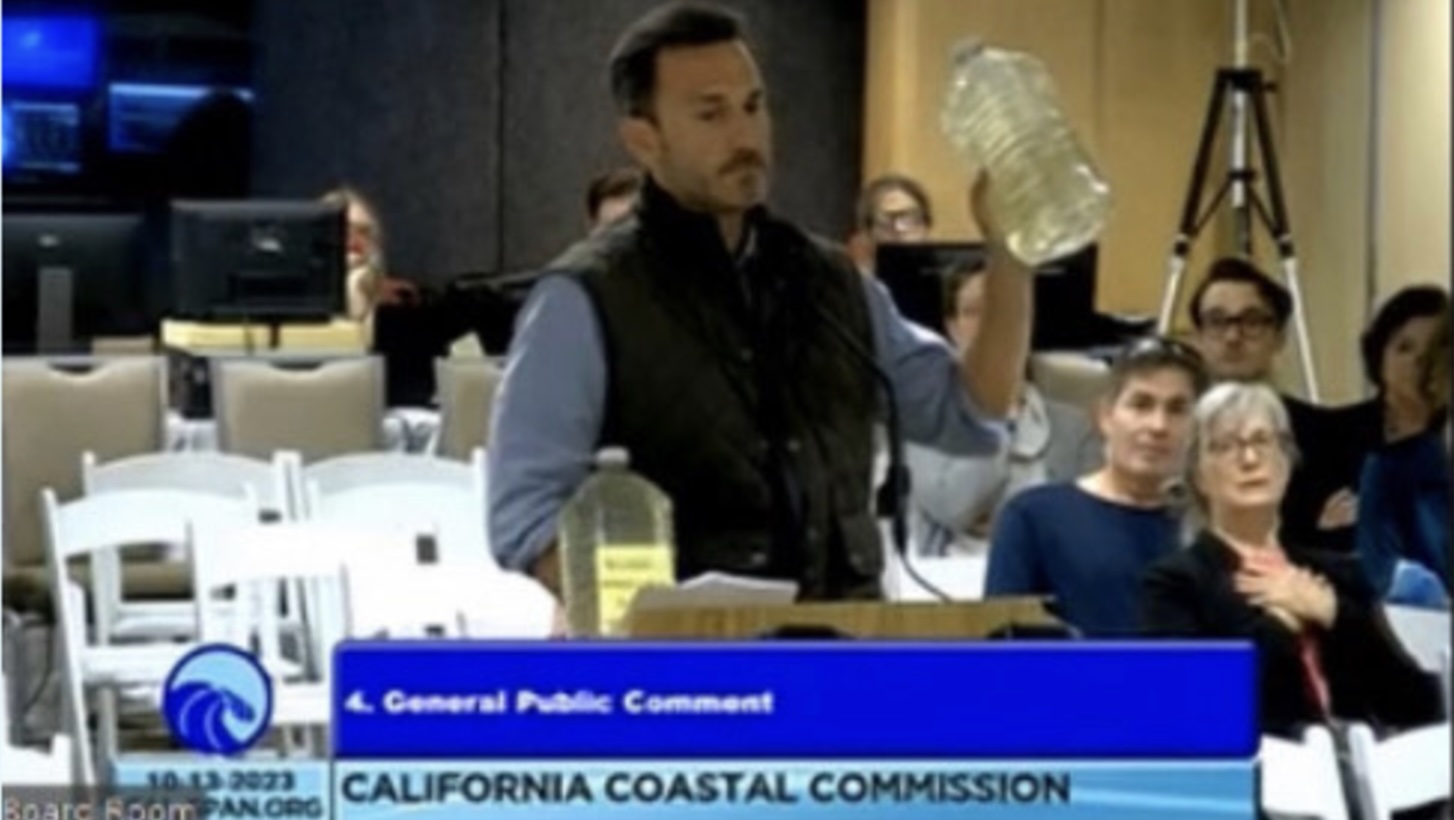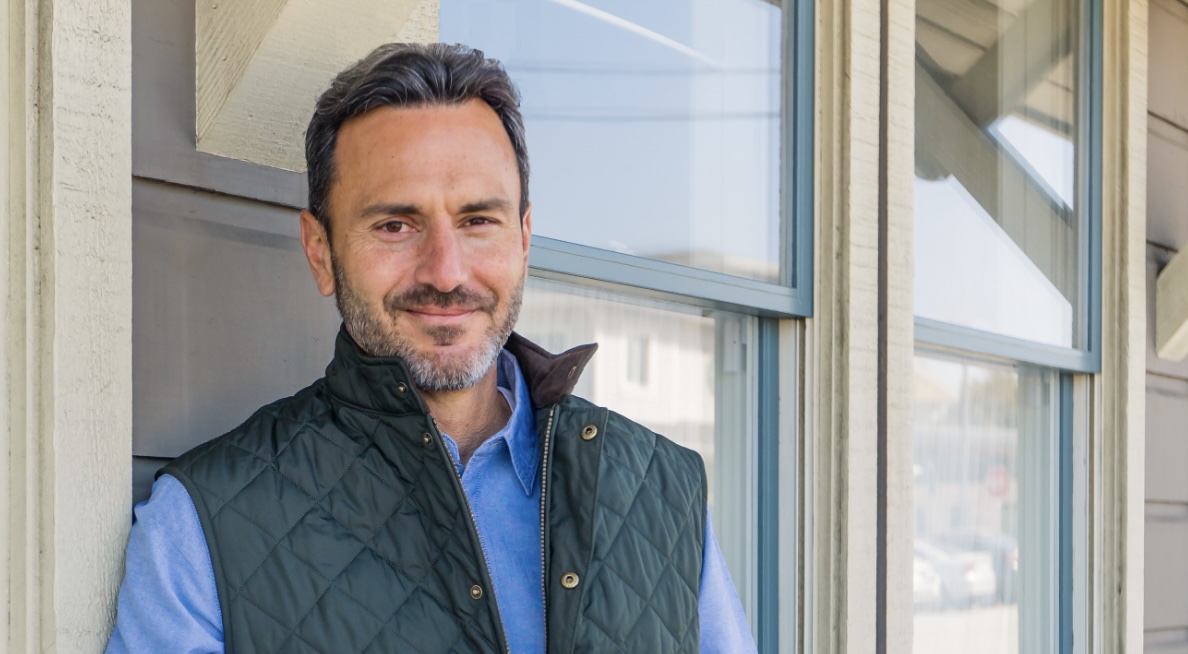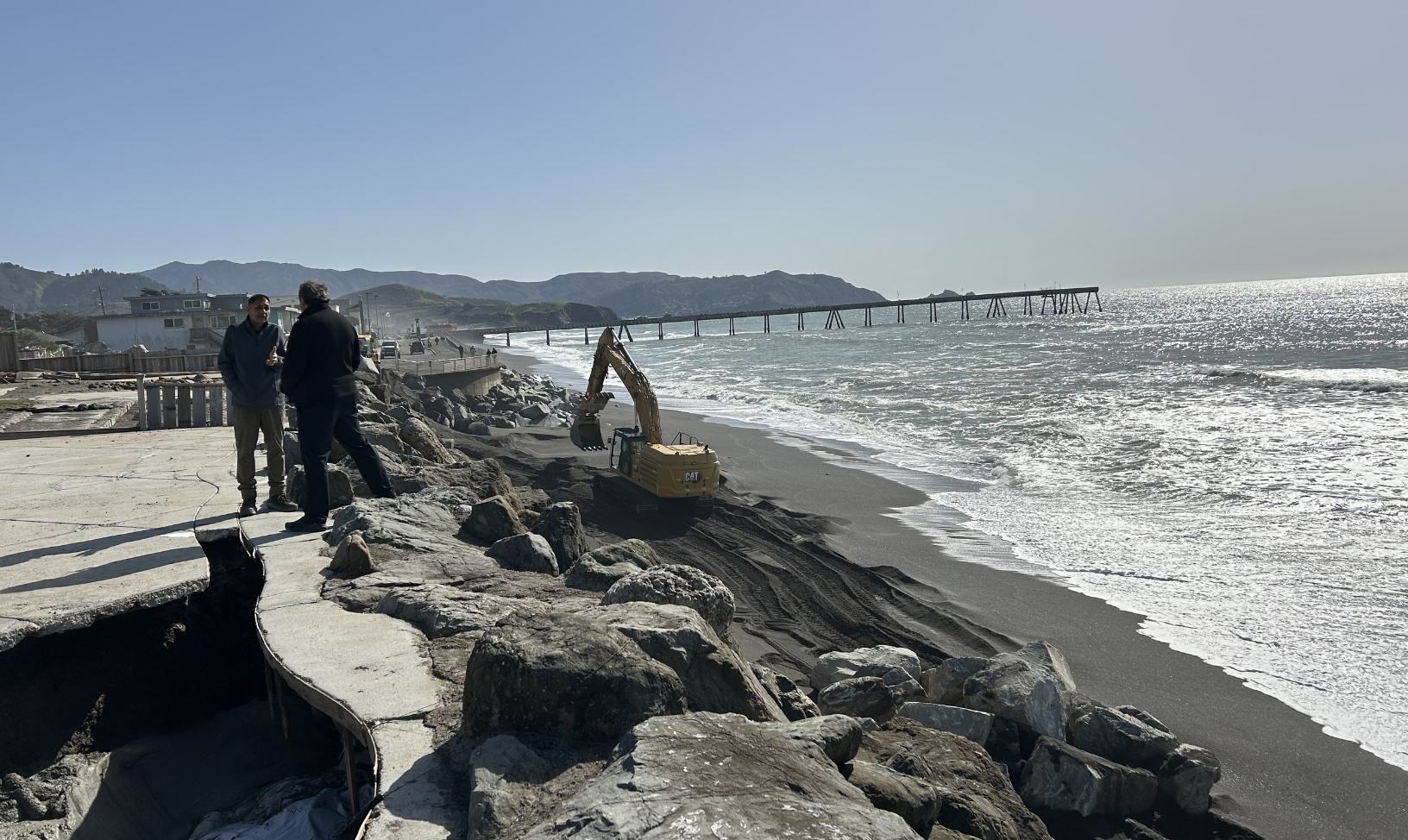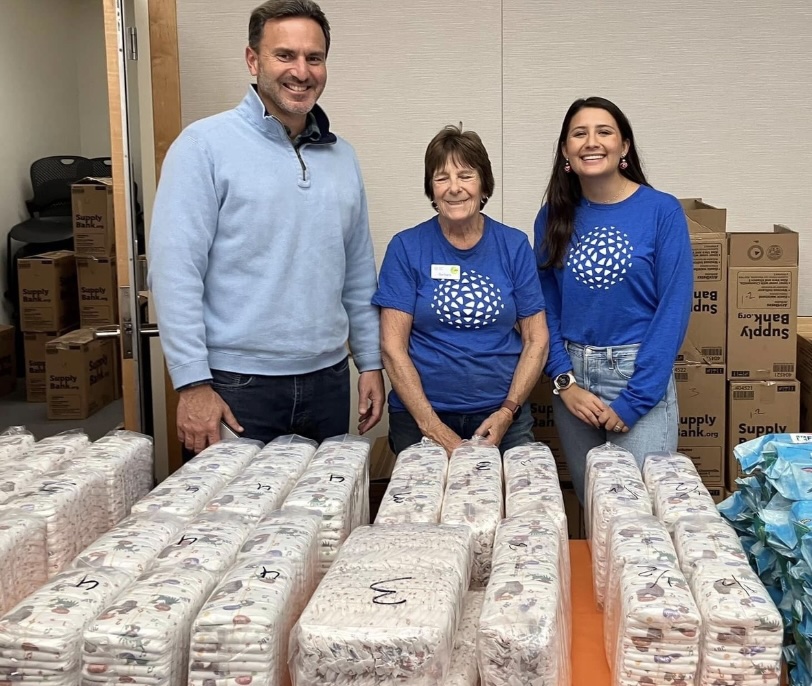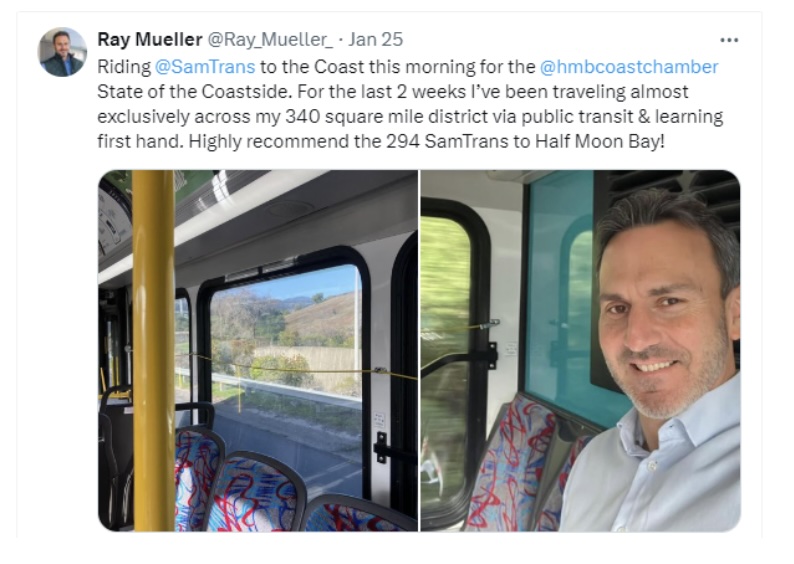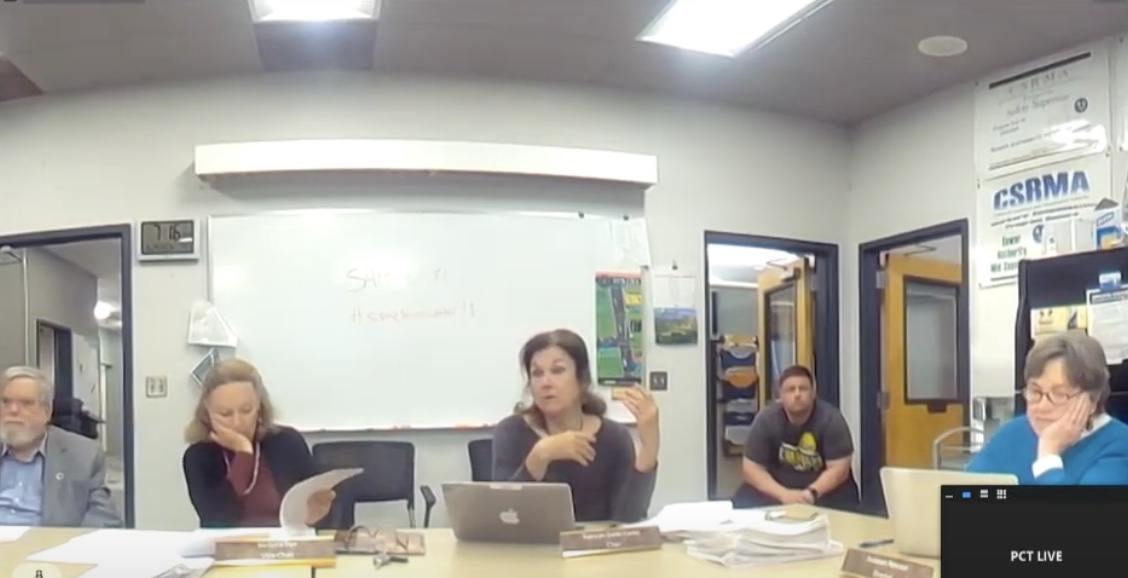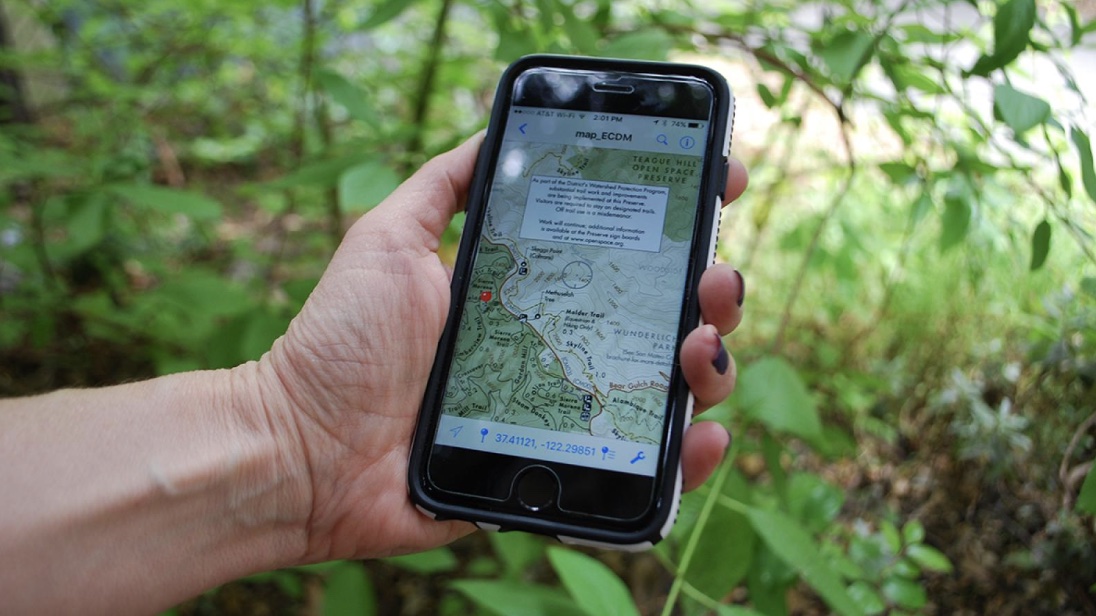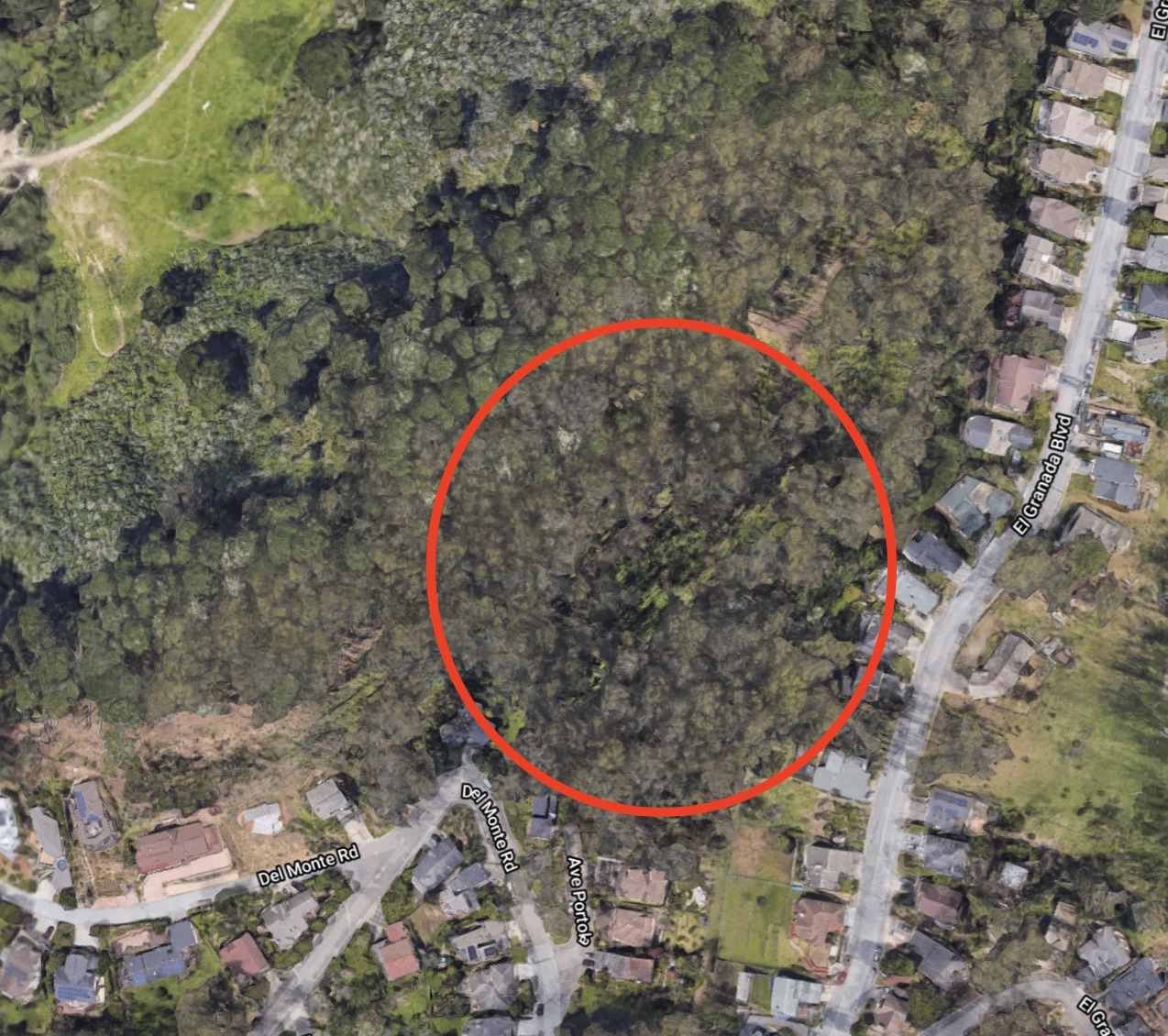|
Getting your Trinity Audio player ready...
|
PRESS RELEASE. From the San Mateo County Executive’s Office on April 4th, 2024.
Half Moon Bay – San Mateo County Supervisor Ray Mueller started his day ensuring residents battered by record rains and wind were getting the help they needed. He would end the day at an evening news conference comforting a community wracked by the worst mass shooting in the county’s history.
“The one thing I want to say to the people who are out there, who live here, who are watching,” Mueller said to a sea of global media, “is please take advantage of the mental health crisis counseling that is available. The amount of stress that’s been on this community for weeks is really quite high.
“If there’s people out there who are suffering from this, who are feeling the effects of it, please reach out and get help tonight. You are not alone.”
On that grim Monday, Jan. 23, 2023, Mueller had been in office less than a month, certainly the most chaotic weeks on the San Mateo County coast in decades.
***
While supervisors were once elected countywide, by-district races are more local affairs. The flip side is that elected representatives may not be as widely known outside their district. With that in mind, the communications team in the County Executive’s Office met with Mueller to learn his priorities for the upcoming year and to reflect on his first year in office.
Mueller, who recently turned 50, won a run-off election in November 2022 to succeed Supervisor Don Horsley representing District 3. San Mateo County is carved into five districts and it’s by far the largest, stretching 340 square miles from Pacifica to the Santa Cruz County line as well as touching the bay near San Carlos Airport. (Districts are roughly equal in population, not geography).
It includes areas of wealth and need, from Atherton to Pescadero.
His first year in office has in many ways been defined by those first weeks, when a series of atmospheric rivers caused floods and landslides and cut power over wide areas of the coast. Then came the mass shooting, a tragedy that focused national attention on a region best known for surf and a pumpkin festival.
“If you build a strong community around you, and if you live with strong ethics and values,” Mueller said on the way to a meeting in Pacifica in his white compact hybrid, “life may take everything away from you, but you’re always going to be able to rebuild.”
He wasn’t talking about storms or shootings but the optimistic philosophy taught to him by his wife’s grandfather, a man shaped by the Great Depression and a survivor of World War II’s Bataan Death March. It’s a philosophy he realizes his parents also lived by, when he was growing up in northern San Diego County.
“I was born into a family of seven. My father was a dentist and my mother was a homemaker. I was the oldest of the bottom three. The family was doing pretty well when I came into the world,” Mueller said.
“Then about the time I was in fifth grade my dad became disabled.”
Degenerative cervical disc disease left his father unable to work. Pain usually confined him to bed by the afternoon. “Mom went to night school to figure out how to make ends meet. She was a lioness holding the family together. As you can imagine, dad’s disability had a tremendous impact on our family.”
But Mueller’s father turned towards hope rather than despair, spending those hours he could tolerate the pain, serving as an ordained minister.
“As a young boy, if I was going to be with my dad during those hours he was out of bed, I was with him serving the community. I was out in the church parking lot giving people food or going to people’s homes helping those who were sick. And if I spent time with dad at home, I was sitting next to him in bed watching PBS, learning about the world,” Mueller said.
“My parents taught me that the way you get through tough times, when things get really rough, is that you actually go out and help others. In the process of building community, you find hope.”
It was that passion for public service that led Mueller to run for elective office.
Mueller earned a bachelor’s degree from the College of Natural Resources at U.C. Berkeley and then a law degree from U.C. Law San Francisco (formerly U.C. Hastings). Initially he went to work as a litigation attorney, representing people who suffered catastrophic injuries, settling in Menlo Park with a young family.
But though professionally he was helping families devastated by injury like the one he grew up in, commuting back and forth to San Francisco on Caltrain, he felt detached from his neighbors. Something was missing in his life. He volunteered for a city commission, and “that passion of what it felt like to serve directly with the community came back.”
That led to a successful campaign for Menlo Park City Council in 2012, followed by reelection in 2016 and 2020, twice serving as mayor. Mueller went on to win the race for District 3 Supervisor in November 2022, with 62.2 percent of the vote.
***
In the days following the Half Moon Bay tragedy, Mueller made the decision to publish pictures he had taken where the victims lived, which he described, in a widely shared social media post, as “Deplorable, heartbreaking living conditions,” adding fuel to a statewide conversation about farmworker housing.
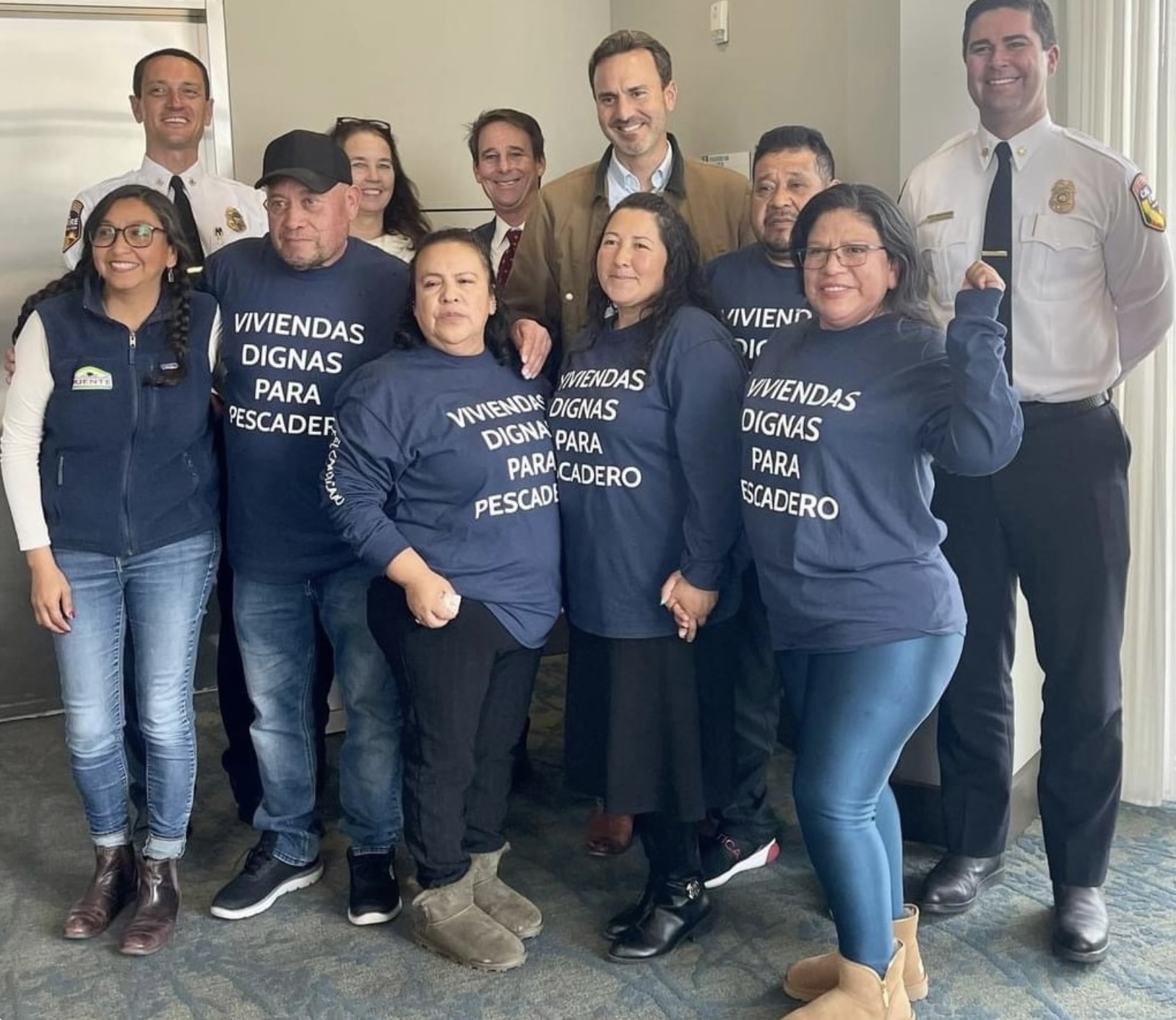
Mueller is now at the forefront of efforts to build a neighborhood of 47 affordable manufactured homes on the coast. At least two dozen would be available for farmworkers and their families to purchase. And under Mueller’s leadership, a task force was created to inspect farms and ranches to ensure existing housing complies with health and safety standards (and in most cases assists, rather than punishes, landowners who work to improve conditions).
“Every farmworker deserves a safe and healthy place to live,” he said. “We in government need to ask ourselves how land use regulation has contributed to this problem, how has government made it difficult to improve farmworker housing.”
Mueller is pushing for streamlined permits and assistance. “Our farmers and ranchers also need an agricultural cooperative distribution center, to lower the cost of bringing agricultural goods to market. We need to invest in all areas of the agricultural ecosystem to make it thrive again.”
Mueller’s vision has resulted in the County entering into a purchase agreement for approximately 50 acres of land on the Coastside, providing a future site for an ag distribution center, a farmers’ market and additional housing. He describes the purchase as a cornerstone project, to support Coastside agriculture for future generations.
Mueller’s work this past year hasn’t just been limited to supporting farmworkers.
He led the County’s efforts to fight AT&T’s proposal to end providing landline service to County residents.
He has called for transparency and pushed back against AHMC Seton’s decision to temporarily close its medical emergency rooms serving Coastside residents and tourists.
With the urgent need for the Coastal Commission to approve a project to bring a pipeline with clean drinking water to the high school and middle school in Pescadero, Mueller drove eight hours to deliver to the commission two containers of contaminated water from the schools’ faucets.
“It’s very important to the public health of Pescadero and also to the children of Pescadero that you be able to hear this item,” Mueller told commissioners during public comment, holding aloft a bottle of water with a yellowish tint. “They deserve better than this water.”
(Mueller addresses the commission at the 29-minute mark in this video feed.)
The commission approved the project last December.
In response to reports of wage theft and unsafe working conditions for the county’s most vulnerable workers, Mueller, with Supervisor Dave Pine, brought forward a proposal to create on Office of Labor Standards Enforcement in San Mateo County. The office launches in June.
Recently, Mueller was featured in the media around his decision to only ride public transit for month. He rode SamTrans, where he is a member of the Board of Directors, to speak with riders about their needs (shelters from sun and rain at stops, please). He was also back on Caltrain, riding the rails while representing San Mateo County’s interests.
Elected to serve a district comprising more than 300 square miles (over half the size of the county), much of it open space with pockets of homes and neighborhoods, comes with challenges. Mueller sees wildfires, extreme weather and rising sea levels as not discussion points about the potential impacts of climate change but as urgent menaces to tens of thousands of residents.
To get a better understanding of what those emergencies may be, Mueller successfully lobbied the County’s Emergency Services Council to approve $200,000 for the San Mateo County Coastal Resilient Infrastructure Strategic Plan, or CRISP.
The plan will include a comprehensive evaluation of the area’s vulnerability in terms of water and wastewater systems, energy and power grids, transportation and telecommunications networks and public health, and ranking of projects for order of investment. “We have to make we use each taxpayer dollar to their highest benefit,” he said.
Thinking of the those who are first to respond to such emergencies, Mueller also has successfully won approval for increased funding of the Sheriff’s Office, to provide overtime pay to deputies who have taken more work due to staffing shortages.
On a daily basis, the Board of Supervisors oversees an operation with 5,500 employees and a $4 billion annual budget. As Mueller outlined priorities for the coming year, he focused on accountability: Where does that money go? Is it making a difference?
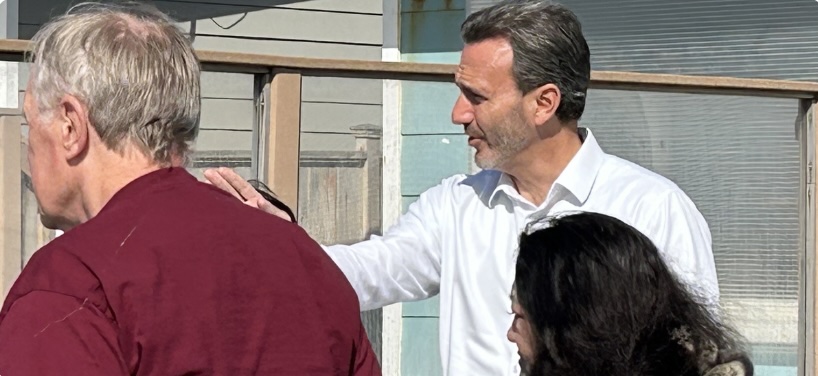
“When we do our work,” Mueller said, “do we really measure whether the decisions we make have the intended impact? We have these tax dollars that families give to us, especially in these times with inflation and with so many families who are working harder than ever to make the ends meet. Our efforts have to go beyond just the best of intentions or what we think is a good investment. We must measure the results with metrics to make sure every tax dollar is well spent.”
By most measures, San Mateo County is one of the wealthiest counties in the nation. Yet aggregates and averages can mask hard reality.
Ten percent of all children 5 years old and younger live at or below the poverty level, according to a report by First Five San Mateo County. In the coming year, one area of Mueller’s focus will be implementing a plan with the Jackie Speier Foundation to provide the county’s most vulnerable single mothers with a monthly income.
The idea is that the funds would help stabilize these families in their daily struggle just to survive the area’s high cost of living. For Mueller, it’s also about tracking the long-term success metrics of the aid, to learn how to create a healthy and resilient social ecosystem that benefits everyone.
“It’s perfectly acceptable to help someone in the moment,” Mueller said. “But if we have the choice of helping someone in the moment, or making an investment decision in their life where we help them change their future, then they’re better off and the community is stronger. There is hope.”
Mueller lives in Menlo Park with his wife and high school sweetheart, Kristen, a school principal, their two children and the family dog, Rocky.
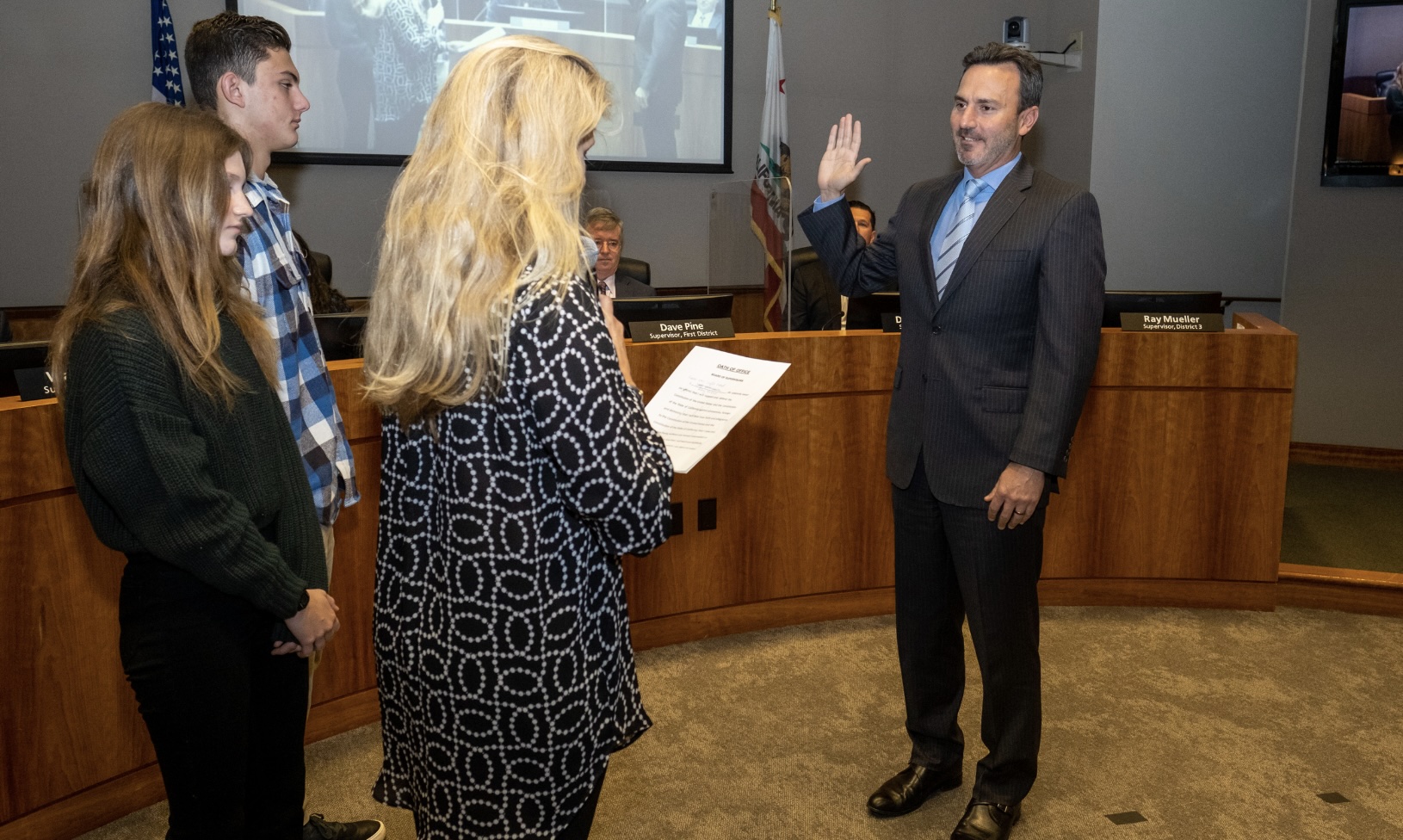
2024 Election
The 2024 Board of Supervisors, from left: Ray Mueller (D3), Noelia Corzo (D2) Warren Slocum (D4, BOS President), David J. Canepa (D5, BOS Vice President) and Dave Pine (D1, outgoing BOS President).


